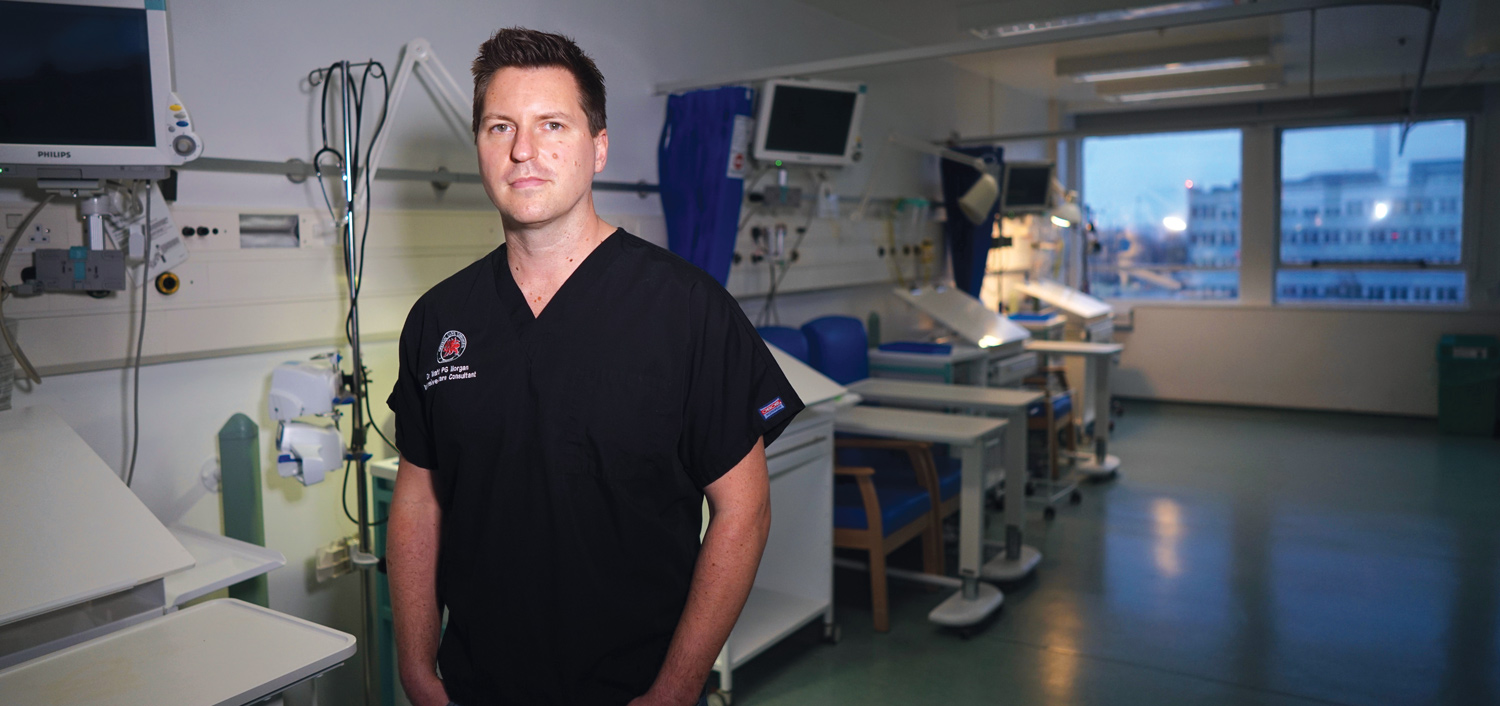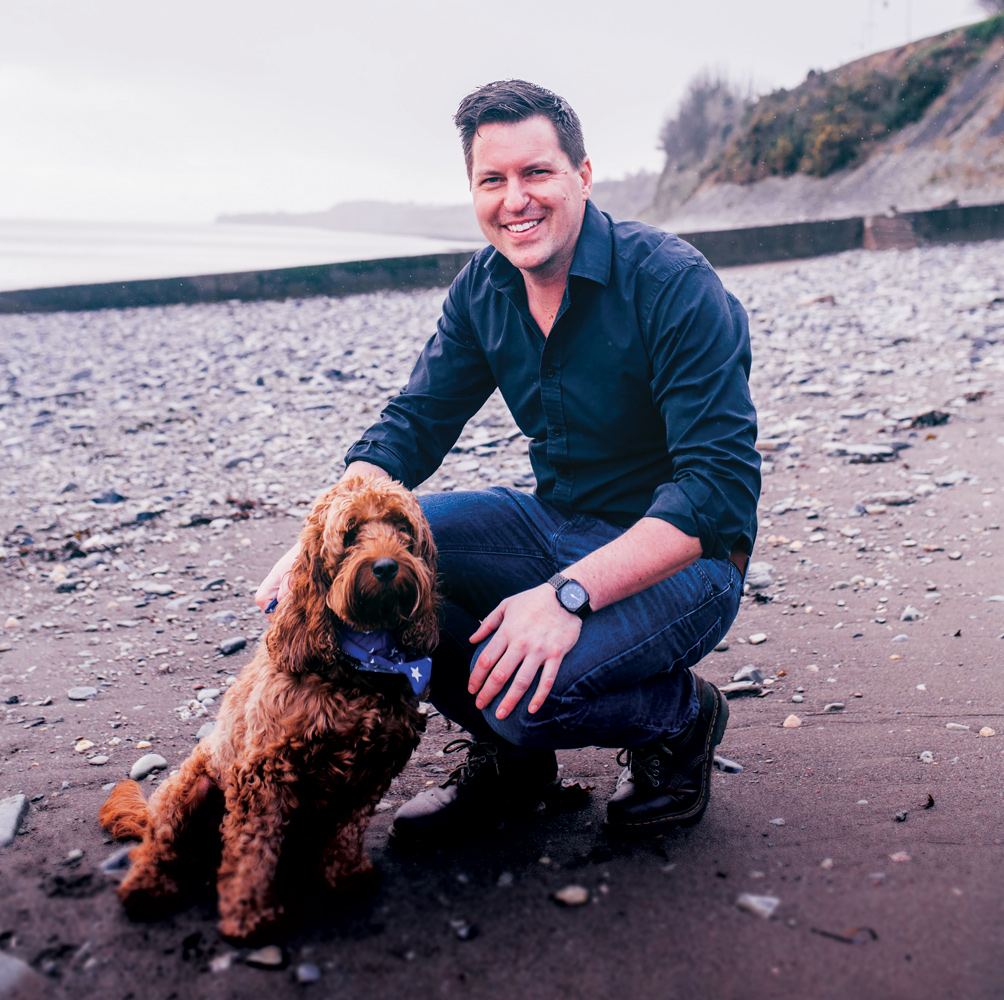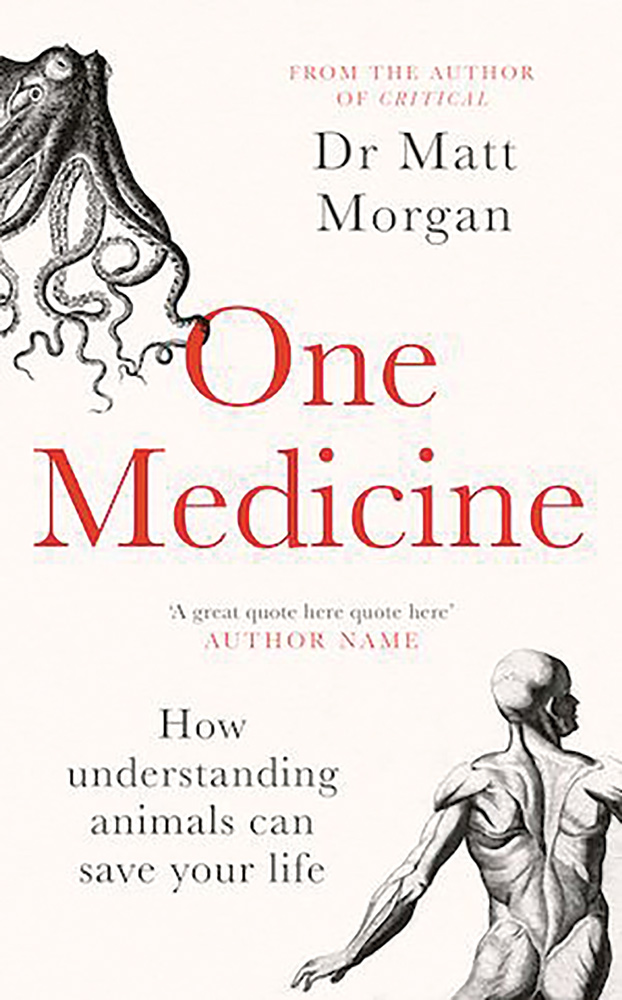 Could a kiss from a frog save your life? According to Dr Matt Morgan in his latest book, One Medicine, there’s so much more to learn from animals and how they live.
Could a kiss from a frog save your life? According to Dr Matt Morgan in his latest book, One Medicine, there’s so much more to learn from animals and how they live.
By Ara Jansen
Granted, running nude on a Scottish island covered in honey is not regular everyday behaviour. But it is just what the doctor ordered. Well, it’s what Dr Matt Morgan ordered for himself while he was working on his latest book.

 Titled One Medicine, it examines animal science and how much more it has to offer human medicine.
Titled One Medicine, it examines animal science and how much more it has to offer human medicine.
Launched recently at the Margaret River Readers & Writers Festival, the book is informative, witty and warm, exploring what human medicine has already discovered in the animal kingdom and suggesting there should be a lot more to come.
Littered with self-experiments – like exploring why a masseuse gives him an erection – music and pop culture references and personal anecdotes, it’s also a highly enjoyable read for the non-medically minded.
The book started with an unusual premise. While the intensive care consultant was examining a patient who had a cardiac arrest because he inhaled some biscuit crumbs, he saw a flock of birds fly past his window. Matt wondered how these birds survive what they must inadvertently inhale all the time while flying.
“I wanted to be Fox Mulder but I wasn’t allowed to be, so medicine seemed the next best thing,” says the Welshman who has been working at Royal Perth for the last few years. “It’s the perfect combination of gadgets, science and humans, which are probably three of the things I enjoy the most. I loved questions but preferred answers, solving mistakes and questions.”
The son of a nurse and an engineer who built roads, Matt has always been an avid reader, but a terrible speller (bless the spell checker) with atrocious handwriting – maybe he was destined to be a doctor. One Medicine is Matt’s second book. He started writing after attending a medical conference where there were so many interesting ideas flying around but none of the public would ever necessarily hear about them.
His debut book Critical, told stories from the frontline of intensive care medicine. After featuring on UK television, his open letter addressed to patients during COVID has been read by more than half a million people.
Matt now also teaches medical and science types how to write books which will appeal to a more mainstream audience. He offers hacks and tips but also ideas on how to write more personal hospital notes, aimed at patients and their families. He writes a regular column for the British Medical Journal and has been featured in The Guardian, The Times, Esquire and on CNN.
One Medicine also tells stories of his patients (with their permission) woven in between stories of how we’ve already used animal know-how to inform human advances – the needle, an understanding of sonar from bats or how studying female kangaroo’s three vaginas has improved in-vitro fertilisation success rates.
“With more and more zoonotic diseases in the world, One Medicine offers a powerful way to think about these things. Most of the things I am talking about in the book, like biomimicry, is also something you see in animal physiology,” he says.
Matt believes vets and doctors have much to learn from and with each other. He queries why vets swear an oath to animal and human health while doctors only swear to maintain the utmost respect for human life.
One Medicine is published by Simon & Schuster.

